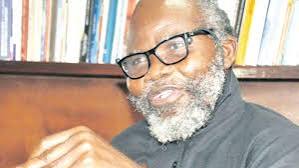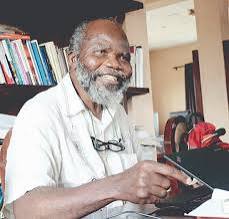A retired military officer, General Ishola Williams, has strongly criticized the immunity clause in Nigeria’s 1999 Constitution, arguing that it encourages corrupt practices among politicians. The former Head of Transparency International in Nigeria believes the constitutional provision that shields elected officials from arrest and prosecution while in office is a breeding ground for impunity.

In an appearance on the Channels Television program “Inside Sources with Laolu Akande,” Williams pulled no punches in his assessment of the controversial immunity clause. “That constitution is corruption-prone,” he asserted. “Why is it corruption-prone? Immunity is equivalent to impunity. So, any constitution that has immunity is creating an institution for impunity because you bring a crook into government and you say: ‘Oh, this crook because he has come into government, he is now a saint, so anything he does, leave him until he leaves’.”
According to Section 308 of the 1999 Constitution, the President, Vice President, state governors, and their deputies cannot be subjected to civil or criminal proceedings, arrested, or imprisoned during their tenure. Williams contends that this provision has enabled some elected officials to engage in corrupt practices with impunity, as they are shielded from immediate accountability.
The retired general argued that, if not for corrupt government officials, Nigeria should be competing with South Africa economically, given the country’s abundant human capital. He lamented the lack of accountability mechanisms, noting that “governors become kleptocrats and demigods in their states, approve any amount they like, and nobody audits them.”
Williams also criticized politicians for their reluctance to amend the constitution, attributing their inaction to the powers and privileges the current document affords them. “Politicians since 1999 have been blaming General Abdulsalami Abubakar for the 1999 Constitution, but politicians themselves don’t want to correctly amend the constitution because of the powers that it gives them, and the greed and the selfishness,” he stated.
The octogenarian, who resigned from the Nigerian Army after the annulment of the June 12, 1993, election, emphasized the importance of followership responsibility in achieving good governance and accountability. He urged civil society organizations to organize conferences and promote awareness about the role of citizens in demanding accountability from their leaders.
“The followership of Nigeria has the greatest responsibility,” Williams stressed. “I believe that the military was wrong at that time. But the interesting thing is the followership. Look at every country in Africa, whenever the military takes over, people go into the streets and rejoice. Nobody has been able to ask that question why the people rejoice whenever the military takes over. It is because the followers choose the wrong leaders, and the leaders take advantage of the irresponsibility of the followers.”
Williams’ comments have reignited the long-standing debate over the immunity clause and its implications for corruption and accountability in Nigeria’s political system. As the country grapples with issues of governance and transparency, his call for greater citizen engagement and constitutional reform resonates with those seeking to strengthen democratic institutions and foster a culture of accountability.




